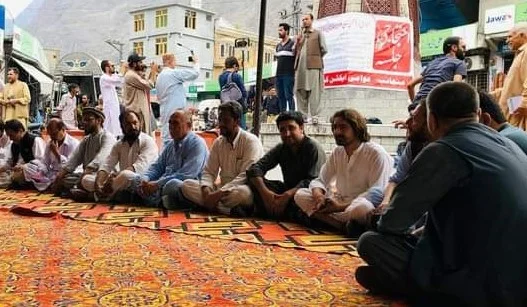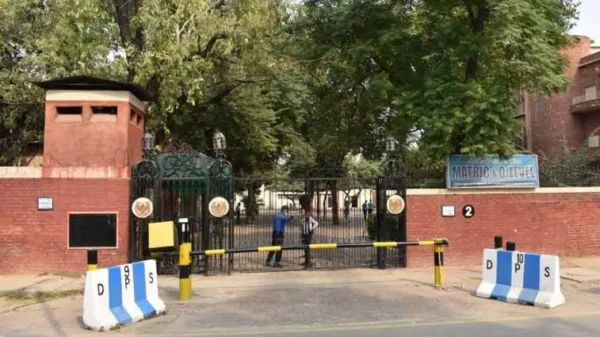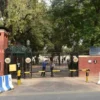Cybercrime Laws
GILGIT: On Monday, the Gilgit-Baltistan Awami Action Committee (GB AAC) organized a significant protest rally against what they allege is the misuse of the Anti-Terrorism Act (ATA) and cybercrime laws by the government.
The rally was held to voice concerns that these laws are being used to suppress dissent and curb freedom of expression in the region.
The protest was led by prominent figures from the GB AAC, including Chairman Advocate Ehsan Ali, Baltistan Division President Najaf Ali, and senior leaders Baba Jan and Mumtaz Nagri.
The rally began with a march along River View Road and culminated in a gathering at the Central Press Club of Gilgit, where the committee leaders addressed the participants.
During the rally, the committee leaders voiced their concerns about the alleged misuse of the ATA and cybercrime laws by the authorities. They claimed that the government has been registering false cases against political activists and GB AAC office-bearers under these laws as a means to silence their criticism and suppress their advocacy for the rights of the local population.
The leaders condemned the coercive measures being employed against political workers and emphasized their commitment to exercising their right to freedom of speech.
They criticized the recent actions of the GB government, which included placing the names of several GB AAC leaders on the Fourth Schedule, a list often associated with potential threats to national security.
Najaf Ali, President of the GB AAC’s Baltistan Division, highlighted several key issues driving the protests. He noted that the committee has been advocating for fundamental rights for local residents, including the uninterrupted supply of electricity and local land ownership rights.
Instead of addressing these pressing issues, the Federal Investigation Agency (FIA) has allegedly begun targeting local activists with baseless charges.
The protesters also expressed frustration over the lack of local body elections in the region for the past two decades and the ongoing issues of land grabbing and the issuance of mineral exploration licenses to outsiders. These problems have compounded the dissatisfaction among the local population.
In response to these grievances, the protesters passed a resolution demanding the withdrawal of cybercrime notices issued against political workers and the dismissal of illegal cases filed against GB AAC office-bearers.
The resolution reflects the rally’s broader call for justice and accountability, seeking to end what they perceive as the government’s misuse of legal frameworks to stifle legitimate political dissent and activism.
The protest in Gilgit-Baltistan underscores the growing tension between local activists and the authorities, as the region continues to grapple with issues of governance, rights, and political expression.










